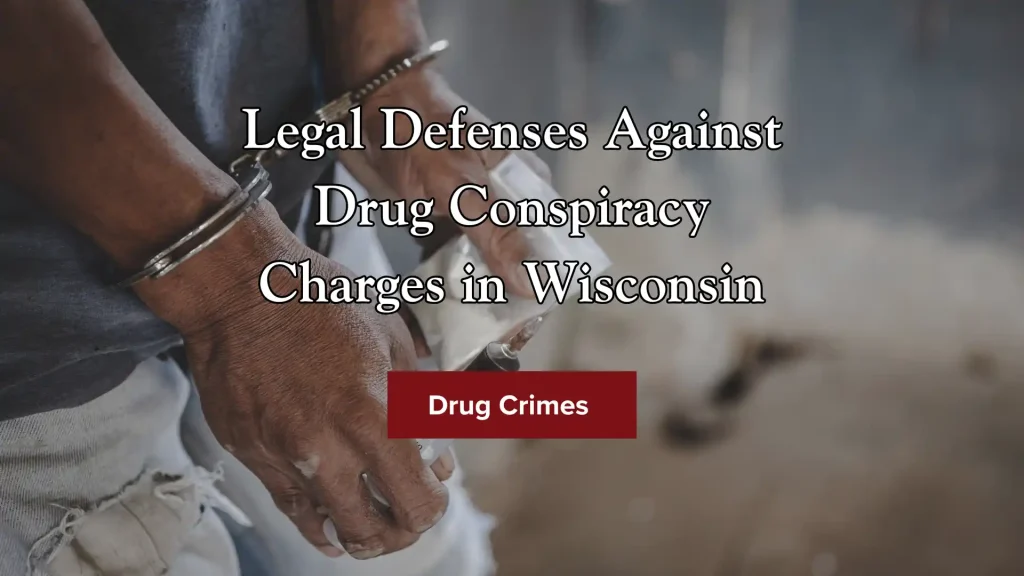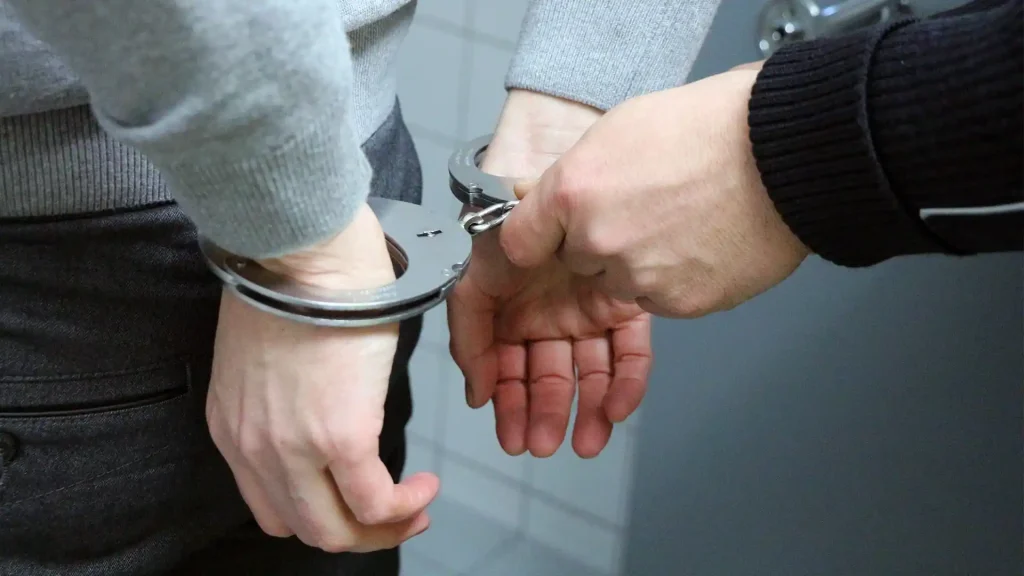
Criminal law in Wisconsin allows prosecutors to charge individuals with conspiring to commit a drug offense, even if the person did not commit the offense. Thus, the law imposes criminal conviction liability for planning and taking steps to carry out a drug crime. However, people charged with participating in a drug conspiracy defense may have various legal and factual defenses against their charges.
What Is a Drug Conspiracy Charge?
A person may face prosecution when prosecutors allege they agreed with others to commit a drug-related crime. Possible crimes include manufacturing, trafficking, distribution, or sales. The government can charge people for entering a drug conspiracy even if they never completed the planned drug crime. For example, perhaps they ran into operational or logistical challenges or were arrested before they could complete the crime. Thus, individuals may face domestic violations and criminal penalties for planning and taking steps to commit a drug offense.
What Must Be Proven in a Conspiracy Case?
To convict a defendant on a drug conspiracy charge, prosecutors must prove the existence of several legal elements beyond a reasonable doubt. The primary elements of a drug conspiracy charge include:
- Agreement – The government must prove that the defendant entered into a deal with one or more people to commit a drug-related crime. Something that often leads to serious drug distribution charges that carry severe penalties. However, prosecutors may not have to confirm that the co-conspirators entered a specific agreement. For example, two individuals may form a drug conspiracy when they both agree to distribute drugs. One individual wants to sell heroin. In contrast, the other individual wants to sell cocaine. Instead, an agreement may only require a shared goal among the co-conspirators, precisely how police investigate drug conspiracies by looking for patterns, communication, and coordinated actions rather than formal deals.
- Knowledge – Prosecutors must establish that a charged defendant knew of the existence of the conspiracy, the existence of co-conspirators (even if they may not have known their identities), and the conspiracy’s intended purpose(s).
- Intent – The government must prove that the defendant intended to form or join the conspiracy.
- Overt Act – In most cases, prosecutors must prove that one or more of the conspirators undertook an overt step towards achieving the objective(s) of the charged with drug conspiracy, such as making phone calls to arrange the bulk purchase of drugs to sell or renting a vehicle to transport illegal drugs from one location to another. The overt act requirement ensures that people do not face drug members of the conspiracy charges for idle speculation or boasting.
Common Conspiracy Defense Strategies
People facing drug conspiracy charges may pursue various defense strategies to challenge the prosecution’s case, such as:
- Lack of Intent/Knowledge – A defendant may claim they took overt steps to commit a criminal offense but did not know they were pursuing that crime in concert with other individuals. Alternatively, a defendant may argue they had no intent to join a conspiracy with others to commit a drug offense.
- Lack of Agreement – A defendant may argue that the evidence fails to prove they reached an agreement with their alleged co-conspirators as to what kind of crime to commit. For example, a defendant may claim they never reached an agreement. Alternatively, they might argue that they and their alleged co-conspirator(s) wanted to commit different kinds of crimes.
- Minimal Involvement – Defendants may seek to avoid criminal liability for a drug conspiracy by arguing they had no or minimal participation in the conspiracy and had no knowledge of the conspiracy’s true scope.
- Withdrawal from the Conspiracy – A defendant can defeat a drug conspiracy charge by proving they withdrew from the conspiracy before any member took an overt act to further the conspiracy’s objective. A withdrawal defense requires a defendant to show they took affirmative steps to leave the conspiracy. Perhaps they withdrew material support, expressly informed other co-conspirators of their withdrawal, or reported the conspiracy to law enforcement.
- No Overt Act – A defendant may defeat a drug conspiracy charge by arguing that the prosecution has no evidence that any alleged conspiracy member took an overt act to further the conspiracy’s objective(s).
Defense strategies may also focus on excluding evidence or inculpatory statements from the prosecution’s case. For example, we may argue that law enforcement investigators found evidence through an unlawful search. Alternatively, perhaps they obtained statements during an interrogation where they failed to advise the defendant of their rights.
Please read more about the Drug Trafficking and Possession here: The Difference Between Drug Trafficking and Possession
What to Do If You’re Accused of Drug Conspiracy
You can protect your rights and interests and put yourself in a favorable position to face drug conspiracy charges. Some best practices to follow include:
- Exercising your right to remain silent when placed under arrest by police
- Refraining from answering the police’s or prosecutors’ questions while in custody and declining to give a statement
- Invoking your right to counsel by asking to speak with a criminal defense lawyer as soon as possible after your arrest
- Consulting a drug defense attorney to determine potential case strategies
How Can a Lawyer Help You with a Trafficking Defense

A criminal defense lawyer can help you face drug trafficking or distribution conspiracy charges by:
- Independently investigating your charges to ensure you have all available evidence, as police and prosecutors may not look for evidence that can help your defense
- Reviewing the facts and evidence in your case to identify potential defenses you may have against the prosecution’s allegations
- Helping you understand the details of drug conspiracy charges and the potential outcomes of your case to help you make informed decisions about how to proceed
- Seeking to weaken the prosecution’s case by moving to exclude evidence unlawfully obtained by police and prosecutors
- Raising all available defenses to contest your charges and pursue a favorable resolution to your case, even when that means going to trial
Contact Our Firm Today for Legal Representation
Following an arrest on drug conspiracy charges, you need experienced legal counsel to help you defend your rights and interests. Our team is here to help you understand your rights and take the first step toward securing the necessary benefits. Contact Hart Powell, S.C. today at (414) 271-9595 for a confidential consultation with an experienced criminal defense attorney to discuss your options for a favorable resolution to your drug conspiracy charges in Wisconsin.
Related Post
What Qualifies as Drug Paraphernalia?
Understanding Prescription Drug Possession Laws in Milwaukee, Wisconsin
The Impact of Prior Drug Convictions on Sentencing in Wisconsin
